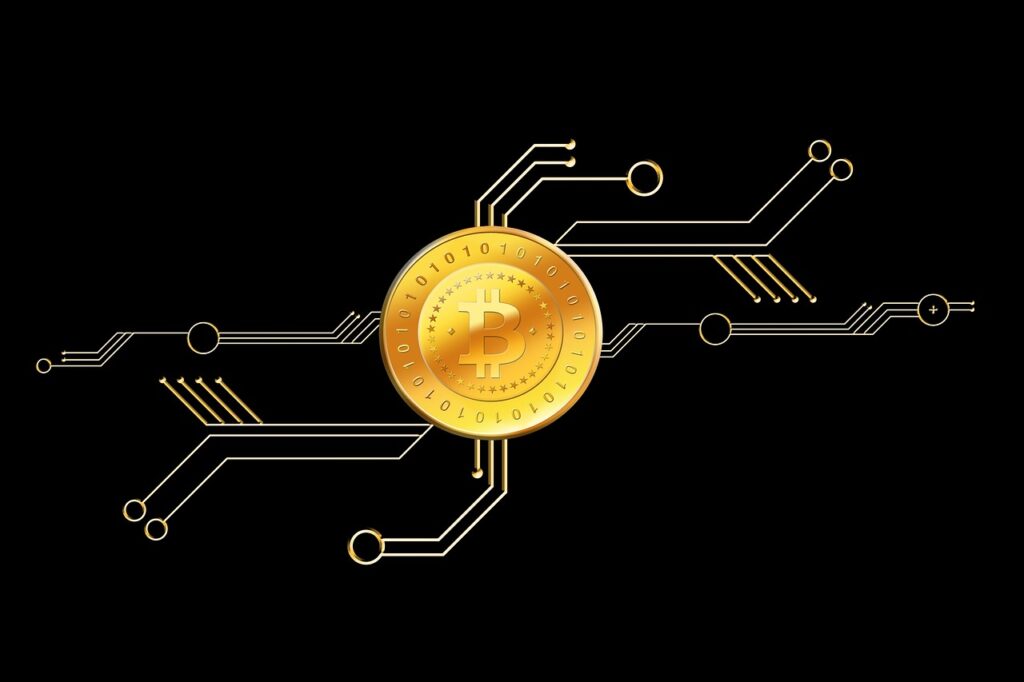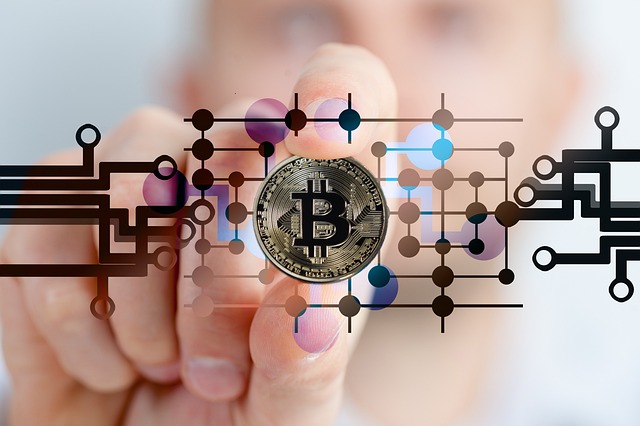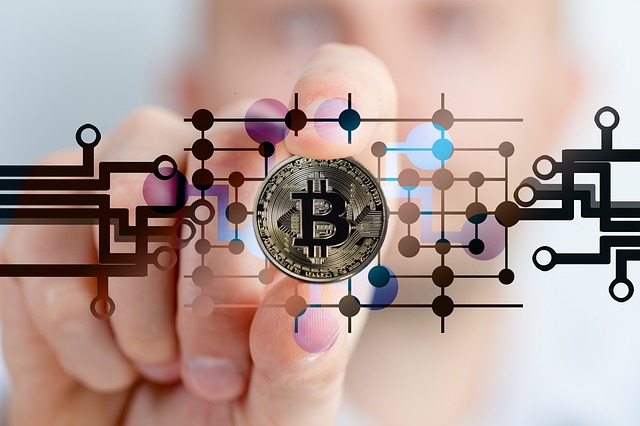Decentralized Finance Technology Insights for [Year]
Decentralized Finance Technology Insights for [Year]

How DeFi Technology is Revolutionizing the Financial Sector
Decentralized Finance (DeFi) technology is ushering in a new era for the financial sector, disrupting traditional models and offering innovative solutions to long-standing challenges. Unlike traditional finance, which relies on centralized intermediaries such as banks, DeFi leverages blockchain and smart contract technology to create a decentralized and transparent financial ecosystem.
One of the key ways DeFi is revolutionizing the financial sector is by providing greater accessibility and inclusivity. Traditional financial systems often exclude large segments of the population, particularly those in underbanked regions or lacking the necessary documentation. With DeFi, anyone with an internet connection can access a wide range of financial services, including lending, borrowing, and investing, without the need for a middleman. This democratization of access has the potential to empower individuals and communities by giving them greater control over their financial lives.
In addition to accessibility, DeFi is also transforming traditional finance through increased efficiency and lower costs. By removing intermediaries and automating processes through smart contracts, DeFi platforms streamline transactions and reduce the need for manual oversight. This not only reduces the time and friction associated with traditional financial transactions but also lowers costs by eliminating the fees typically charged by intermediaries. As a result, individuals and businesses can benefit from faster, cheaper, and more seamless financial interactions, ultimately driving greater economic growth and innovation. The potential of DeFi to revolutionize the financial sector is immense, offering a decentralized and inclusive alternative that has the power to reshape the way we interact with money and financial services.
The Growth of Decentralized Finance Platforms
Decentralized Finance (DeFi) platforms have seen remarkable growth and adoption over the past few years. These platforms, built on blockchain technology, offer a wide range of financial services without the need for intermediaries such as banks or traditional financial institutions. This has allowed individuals all over the world to access and participate in various financial activities easily.
One of the significant factors contributing to the growth of DeFi platforms is the ability to offer users greater financial autonomy. With DeFi, individuals can have control over their funds and participate in various financial activities like lending, borrowing, and trading with minimal barriers. The open and permissionless nature of DeFi platforms allows anyone with internet access to participate, irrespective of their location or socioeconomic status. This accessibility has not only expanded financial opportunities for the unbanked or underbanked populations but has also attracted traditional financial market participants who seek alternative and innovative ways to manage and grow their assets.
The Benefits of Using DeFi Technology
DeFi technology offers several benefits that are revolutionizing the financial sector. One of the key advantages is the elimination of intermediaries such as banks or brokers.

Moreover, using DeFi technology provides users with the ability to retain control over their assets. Traditional financial systems often involve entrusting funds to third parties, which can be risky and subject to potential fraud or mismanagement. In contrast, DeFi allows individuals to have full custody of their assets at all times, thanks to the use of blockchain technology. This level of control not only ensures security but also gives individuals the freedom to manage their finances according to their own preferences and risk tolerance.
Exploring the Different Types of DeFi Applications
In the world of decentralized finance (DeFi), there exists a myriad of applications that are reshaping the financial landscape. One such application is decentralized exchanges (DEXs). These platforms allow users to trade cryptocurrencies directly with one another, eliminating the need for intermediaries like traditional exchanges. With DEXs, users can enjoy faster transactions, increased privacy, and reduced fees compared to their centralized counterparts.
Another type of DeFi application gaining traction is decentralized lending and borrowing platforms. These platforms utilize smart contracts to enable peer-to-peer lending, eliminating the need for banks or other financial institutions. Users can lend their crypto assets and earn interest or borrow funds by collateralizing their assets, all within the DeFi ecosystem. This democratizes access to financial services by bypassing traditional lending processes, making it accessible to a broader range of individuals who may not have access to traditional banking services.
In addition to DEXs and lending platforms, there are various other types of DeFi applications like decentralized stablecoins, prediction markets, insurance platforms, and more. Each of these applications serves a specific purpose within the DeFi ecosystem, providing users with new and innovative ways to interact with financial services. As DeFi continues to evolve, it is likely we will see even more diverse and specialized applications emerge, further revolutionizing the way we engage with finance.
Understanding the Role of Blockchain in DeFi
Blockchain technology plays a crucial role in the world of decentralized finance (DeFi). At its core, blockchain is a distributed and transparent ledger that records all transactions in a secure and immutable manner. By leveraging this technology, DeFi platforms are able to provide users with a trustless and permissionless environment, eliminating the need for intermediaries such as banks or traditional financial institutions.
One key aspect of blockchain in DeFi is its ability to enable the creation, execution, and enforcement of smart contracts. These self-executing agreements are programmable and automatically execute when certain predetermined conditions are met. This feature eliminates the need for intermediaries, reducing costs and increasing efficiency. Moreover, the transparency of blockchain ensures that all parties involved can verify the details of the contract, providing a higher level of trust and security.
In addition to smart contracts, blockchain technology also enables the seamless transfer of digital assets. By utilizing blockchain, DeFi platforms can create tokenized versions of traditional assets such as stocks, bonds, or real estate. These digital representations can then be traded on the platform, allowing for instant and efficient transactions. Blockchain’s immutability ensures the authenticity and ownership of these assets, revolutionizing the way financial assets are bought, sold, and transferred.
The Challenges and Risks of Decentralized Finance
Decentralized finance, or DeFi, is undoubtedly transforming the financial sector by providing various benefits and opportunities for users. However, like any innovation, it also poses its own set of challenges and risks that need to be carefully considered. One of the most significant challenges faced by DeFi is its vulnerability to hacking and fraudulent activities.
Due to the autonomous nature of DeFi platforms, they are attractive targets for hackers seeking to exploit vulnerabilities for personal gain. The absence of centralized oversight and control makes it challenging to regulate and secure these platforms effectively. As a result, users must exercise caution and conduct thorough research before engaging with any DeFi project. Additionally, the volatility of cryptocurrencies, which serve as the foundation of many DeFi applications, can expose users to financial risks. Fluctuating prices and uncertain market conditions can lead to substantial financial losses if not managed wisely. Therefore, individuals looking to invest or participate in DeFi projects must carefully assess their risk tolerance and consider these potential drawbacks.
How DeFi is Democratizing Access to Financial Services
The democratization of access to financial services has long been a goal for many individuals and communities around the world. Traditional banking systems have often excluded marginalized groups due to stringent requirements and costly fees. However, with the advent of DeFi technology, this landscape is rapidly changing.
Decentralized Finance, or DeFi, offers a more inclusive and accessible alternative to traditional financial systems. By leveraging blockchain technology, DeFi platforms enable individuals to access financial services without relying on intermediaries. This means that anyone with an internet connection can participate in activities such as borrowing, lending, and investing, regardless of their location or socioeconomic status. With DeFi, financial power is no longer limited to the elite few, but rather distributed among the masses, transforming the way we view and interact with money.
• DeFi platforms utilize blockchain technology to provide a decentralized and transparent financial system.
• Individuals can access financial services such as borrowing, lending, and investing without relying on intermediaries.
• The democratization of access to financial services means that anyone with an internet connection can participate, regardless of their location or socioeconomic status.
• Traditional banking systems often exclude marginalized groups due to stringent requirements and costly fees.
• DeFi allows individuals to have more control over their finances and eliminates the need for trusted third parties.
• Financial power is distributed among the masses rather than limited to the elite few.
The Potential Impact of DeFi on Traditional Banking Systems
Decentralized Finance (DeFi) technology has the potential to shake up and reshape traditional banking systems. With its innovative solutions and decentralized nature, DeFi offers an alternative to the traditional centralized banking model.

Additionally, DeFi has the potential to increase financial inclusion and accessibility. Traditional banking systems often have strict requirements and barriers that prevent many individuals and communities from accessing essential financial services. However, with DeFi, anyone with internet access can participate in various financial activities, such as lending, borrowing, or investing, without needing to rely on a centralized institution. This democratization of finance has the potential to empower individuals and communities, especially those who have historically been excluded from the traditional banking system.
Key Factors to Consider Before Investing in DeFi Projects
When considering investing in DeFi projects, there are several key factors that should be carefully evaluated. Firstly, it is essential to thoroughly research and understand the specific DeFi platform or project you are interested in. This includes examining its underlying technology, the team behind it, and its overall reputation within the DeFi community. By doing your due diligence, you can gain insights into the project’s potential for success and determine whether it aligns with your investment goals.
Another important factor to consider is the level of risk associated with the DeFi project. While decentralized finance has the potential for significant returns, it is also accompanied by inherent risks. Factors such as smart contract vulnerabilities, hacking incidents, and regulatory uncertainties can all impact the stability and security of the project. It is crucial to assess the project’s risk profile and consider the mitigating measures in place before making any investment decisions. Furthermore, it is wise to diversify your investments across multiple DeFi projects to minimize exposure to any one project’s risk.
Future Trends and Innovations in Decentralized Finance Technology
As decentralized finance (DeFi) continues to gain traction, several future trends and innovations are set to shape this evolving technology. One notable trend is the integration of artificial intelligence (AI) in DeFi platforms. AI-powered algorithms can analyze large volumes of data in real-time, enabling more efficient risk assessment and decision-making processes. This could result in improved lending and investment opportunities, as well as more accurate prediction models for DeFi users. Additionally, AI-powered chatbots may be employed to provide personalized customer support, enhancing the overall user experience in DeFi applications.
Another promising trend is the emergence of decentralized identity solutions within the DeFi ecosystem. Traditional financial systems often rely on centralized entities to verify and manage user identities. However, with DeFi, individuals can maintain control over their personal information through technologies like self-sovereign identities. This allows for greater privacy, security, and interoperability across different DeFi platforms. By leveraging blockchain and cryptographic mechanisms, decentralized identity solutions have the potential to revolutionize not only financial services but also other sectors that require identity verification, such as healthcare and supply chain management.
The future of DeFi holds incredible potential for widespread adoption and transformative changes in the financial landscape. With the integration of AI and decentralized identity solutions, we can expect more efficient and secure financial services within decentralized finance platforms. However, it is essential to carefully consider the risks and challenges associated with these innovations, as they can introduce new vulnerabilities and complexities.

How is DeFi technology revolutionizing the financial sector?
DeFi technology is revolutionizing the financial sector by removing the need for intermediaries, such as banks, and allowing individuals to have direct control over their finances through decentralized applications.
What is the growth of decentralized finance platforms?
Decentralized finance platforms are experiencing significant growth as more people recognize the benefits of DeFi technology, such as increased financial freedom, lower fees, and access to a wider range of financial services.
What are the benefits of using DeFi technology?
Using DeFi technology offers benefits such as transparency, security, accessibility, and the ability to earn passive income through various decentralized applications.
What are the different types of DeFi applications?
There are various types of DeFi applications, including decentralized exchanges, lending and borrowing platforms, stablecoins, yield farming platforms, and decentralized insurance platforms.
What is the role of blockchain in DeFi?
Blockchain technology plays a crucial role in DeFi by providing a transparent and immutable ledger to record all transactions and smart contracts that automate the execution of financial agreements.
What are the challenges and risks of decentralized finance?
Decentralized finance faces challenges such as scalability, regulatory uncertainty, smart contract vulnerabilities, and potential security breaches. There is also the risk of losing funds due to human error or hacking.
How is DeFi democratizing access to financial services?
DeFi is democratizing access to financial services by allowing anyone with an internet connection to participate in the global financial system, regardless of their geographic location, income level, or background.
What is the potential impact of DeFi on traditional banking systems?
DeFi has the potential to disrupt traditional banking systems by offering more inclusive and efficient financial services. It may reduce the reliance on traditional banks for services like lending, borrowing, and asset management.
What are the key factors to consider before investing in DeFi projects?
Before investing in DeFi projects, it is essential to consider factors such as project team expertise, security audits, token economics, liquidity, and community support.
What are the future trends and innovations in decentralized finance technology?
Future trends and innovations in DeFi technology may include improved scalability solutions, enhanced user experience through user-friendly interfaces, integration with traditional financial systems, and the emergence of new DeFi applications.
Todays Featured Product:
Buy, exchange and grow your crypto securely with a Ledger hardware wallet, combined with the Ledger Live app. It’s never been easier to keep your crypto safe and accessible. Buy direct from Ledger.com and get todays Special Offers Here.




